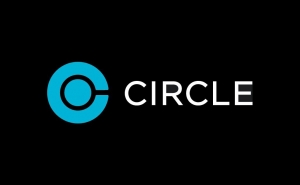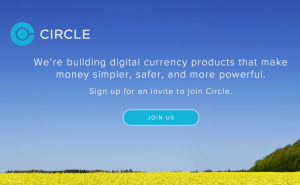Taking bitcoin to a whole new level: Jeremy Allaire reveals all about Circle
Jeremy Allaire tells us about Circle and what he plans to do with the bitcoin company's $9m investment.
:format(jpg)/cloudfront-us-east-1.images.arcpublishing.com/coindesk/2QYUSR7C3FGVBI5SAWA74AFKX4.jpg)
Jeremy Allaire is already pretty well known in the tech world, having played an integral part in the creation of ColdFusion, the Macromedia MX (Flash) platform, and online video platform Brightcove. However, he just stepped even further into the limelight.
Allaire is now heading up a new company called Circle, which aims to take the bitcoin market by storm. It's made a mighty good start, too, having secured $9m in Series A funding – the largest amount ever raised by a bitcoin company.
CoinDesk spoke to Allaire to find out what Circle is all about, where the name came from and just what, exactly, he plans to do with all that cash.
CD: Tell us how Circle came about
JA: Last year I took my company Brightcove public and in January this year I stepped from the CEO role into the chairman role, which gave me a bit more time to look for something new.
I had been tracking digital currency for a while, but I then started to look more closely at it and saw how exciting it was. I was as excited about it as when I experienced the Internet in its first days – when I saw the first web browser.
It really struck me as a totally transformational technology and I immediately began thinking about how bitcoin could become as significant as email, or Skype.
This spring, I started looking really closely at the technology and the ecosystem and kind of came up with the ideas behind Circle.
Choosing a name is really hard, especially these days – there are hardly any decent ones left! We wanted a name that was a real word – not something made up – and that truly represented the global nature of digital currency.
We found the domain name Circle.com – it was expensive, but we really liked it and just had to have it.
From what's been announced, it looks like you're going to offer similar services to BitPay and Coinbase. What makes Circle different?
We've not launched our products publicly yet, so there are some things I can't comment on, but I think both Coinbase and BitPay are very solid companies and are making great progress in the space.
[post-quote]
I think at the same time, though, it's very early days and there's still a lot that needs to be done.
What is Circle's main focus?
A lot of what we're working on centres on making bitcoin extremely easy for consumers and merchants to adopt. We want to make participating in digital currency as easy as participating in other key technologies on the web – email, Skype or basic applications.
It still takes a lot of time for consumers to get access to digital currency and actually use it. We are really deeply focused on making this a really easy, straightforward and pleasant experience for consumers and businesses that want to start accepting and using digital currency.
We really want to engage in the broader ecosystem to make the bitcoin experience better for everyone. I think there is tremendous opportunity to work with other companies that are complementary and we're very excited to work more closely with merchants who are interested in accepting bitcoin.
We are very focussed on bitcoin. I think right now bitcoin is the only game in town. It has established a real marketplace and infrastructure all across the world, but how this evolves is, of course, unknown.
But over time I think the standards will have to evolve, so whether in the distant future the main digital currency is called bitcoin or it works in another way, we don’t really know. But we do know that bitcoin is the foundation.
When are you launching Circle's products?
We want to have a beta as soon as possible, but while we prepare for that, we're very much focused on making sure Circle is compliant – not just to keep the authorities happy, but to prove to consumers that we're trustworthy.
There's a lot that needs to be done to educate and work with regulators and policy makers and I think that over time this will shape who is able to be a viable player in the space.
You're registered as a money transmitter with FinCEN, was that a difficult process?
Not at all, you don’t have to go through a significant vetting process, you just have to register with the federal government and be compliant with the core know-your-customer (KYC) and anti-money-laundering (AML) rules.
:format(jpg)/cloudfront-us-east-1.images.arcpublishing.com/coindesk/KMQZKI73G5DN3OZKBQXF7BKTWU.png)
The real problems come at the state level. If you're a 'money services business', the state wants to be able to oversee the business you do with consumers in their state.
A lot of new innovative financial products have emerged over the past 10 to 20 years and the states have had to try and get their heads around each one. PayPal and pre-paid cards, for example, were new kinds of money service businesses at one point and each state took their time to figure out what to do, but they got there in the end.
What are you going to do with your $9m Series A funding?
We currently have 14 people on the team so first of all we want to expand that with more engineer and business roles in both Boston and our international HQ in Dublin, Ireland.
The engineers will work on building out our products, but, during this time, we'll also focus on increasing our compliance personnel. We've realised that compliance is key.
Thanks Jeremy, anything else you'd like to add?
Just that we're really excited about the digital currency space and market and we're looking forward to contributing to the community and hopefully turning bitcoin up a notch and taking it into a completely new scale of use!


:format(jpg)/downloads.coindesk.com/arc/failsafe/user/1x1.png)